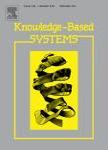版权所有:内蒙古大学图书馆 技术提供:维普资讯• 智图
内蒙古自治区呼和浩特市赛罕区大学西街235号 邮编: 010021

作者机构:Amrita Vishwa Vidyapeetham Amrita Sch Comp Dept Comp Sci & Engn Chennai India Prince Sattam Bin Abdulaziz Univ Dept Comp Engn AlKharj Saudi Arabia King Abdulaziz Univ Fac Comp & Informat Technol Jeddah Saudi Arabia
出 版 物:《KNOWLEDGE-BASED SYSTEMS》 (Knowl Based Syst)
年 卷 期:2025年第310卷
核心收录:
学科分类:08[工学] 0812[工学-计算机科学与技术(可授工学、理学学位)]
基 金:Funding information is not applicable because no funding was received. I confirm that all authors listed on the title page have contributed significantly to the work have read the manuscript attest to the validity and legitimacy of the data and its interpretation and agree to its submission
主 题:Relevance vector machine Mutual information gain maximization Gaussian mixture model Big data classification Incremental weighted ensemble broad learning system
摘 要:In the era of big data, technologies like the Internet of Things, smart cities, healthcare, and social media rely heavily on advanced data analytics. In medical data, certain critical diseases are significantly underrepresented compared to more prevalent conditions, creating a class imbalance that can lead to biased models favoring majority class predictions. This imbalance reduces the accuracy and reliability of predictions for the minority class, which is often essential for early diagnosis and intervention in rare but severe diseases. This is particularly challenging in medical data, where cancer classification faces problems such as high dimensionality, redundancy, and severe class imbalance. To address these challenges, this paper proposes a novel framework which integrates a Relevance Vector Machine classifier with an Incremental Ensemble framework to effectively manage data imbalance. It employs a Gaussian Mixture Models-based combined resampling algorithm to balance the dataset by resampling. Mutual Information Gain Maximization enhances the effectiveness of feature selection. To further enhance performance, an Adaptive Weighted Broad Learning System is incorporated a density-based weight generation mechanism using prior distribution information. Additionally, an Incremental Dynamic Learning Policy-based Relevance Vector Machine classifier is incorporated to adapt to new data, and maintain high accuracy. The proposed model achieves superior performance with an Accuracy of 99 %, a Kappa value of 98 %, an F1-Score of 99 %, and an MCC of 96.9 %. These results underscore the model s effectiveness in addressing class imbalance, enhancing predictive accuracy for minority classes, and offering a robust solution for complex medical datasets essential for improved healthcare outcomes.